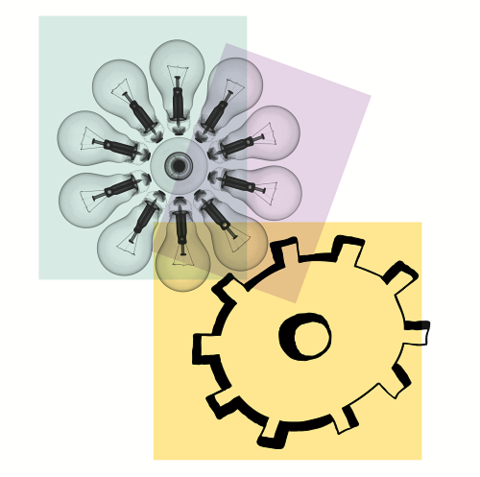In making a decision regarding withdrawal of CANH, clinicians must follow the relevant provisions of the Mental Capacity Act (‘MCA’) 2005 and the relevant guidance. Lady Black considered that the decision-making process for clinicians “is the subject of proper professional guidance, covering vitally important matters” and that the guidance safeguards the interests of patients and their families “as far as possible against errors in diagnosis and evaluation, premature decisions and local variations in practice”.
Facts
This case concerned ‘Y’, a man in a minimally conscious state (‘MCS’), whom both the family and treating team had agreed should no longer receive CANH. Given the lack of clarity regarding court involvement in decisions regarding withdrawal of CANH where the parties are agreed as to best interests, the Trust made an application to the High Court for confirmation that they did not need approval from the Court of Protection for this decision. The Official Solicitor, acting as litigation friend for Y, argued that approval from the Court of Protection must be sought before CANH could be withdrawn from a patient with PDOC.
The Trust succeeded at first instance and the High Court held that the Trust did not have to seek the endorsement of the Court of Protection. The Official Solicitor sought permission to appeal to the Supreme Court.
Supreme Court judgment
Lady Black concluded that there was no requirement either at common law or under the ECHR for court approval to be sought when withdrawing CANH where the parties are agreed, as the Official Solicitor had proposed. If the decision is ‘finely balanced’ or there is a difference of medical opinion, or a lack of agreement to a proposed course of action, a court application should be made.
Lady Black noted that some appeared to feel less comfortable withdrawing CANH than, for example, artificial ventilation as CANH was more readily perceived as “basic care”. However, she explained that in Bland it was decided that CANH was a medical treatment and on that basis it was not easy to explain why CANH should be treated differently from other forms of life-sustaining treatment such as artificial ventilation in a legal context. Further, in a critical care setting CANH was not considered differently from any other form of life-sustaining treatment.
Importantly, she noted that the Official Solicitor had argued that applications to withdraw CANH should be made to court for a very specific category of patient, i.e. only those with PDOC. She observed, however, that the same treatment withdrawal decisions would arise in patients with other conditions, such as advanced stages of a degenerative neurological condition or in the advanced stages of dementia. She had difficulty accepting that different legal rules applied to patients dependent on the underlying cause of their condition and said that patients should not be categorised “in such a way as to justify judicial involvement being required for the PDOC patients but not for the others.” She explained that ultimately all doctors presented with this decision, irrespective of the patient’s underlying condition, take this decision in the patient’s best interests.
Lady Black noted the decision-making process for clinicians may not be straight-forward and may call for considerable professional skill and individual judgement. She helpfully outlined how that decision-making should take place. She explained that this process is the subject of proper professional guidance, covering “vitally important matters” such as the involvement of a doctor with specialist knowledge of prolonged disorders of consciousness, and the obtaining of a second opinion from a senior independent clinician, external to the organisation caring for the patient, with no prior involvement in the patient’s care. That expert was expected to carry out their own examination of the patient. She noted that in her view the second opinion was a “crucial part of the scrutiny that is essential for decisions of this sort”.
The BMA, GMC and RCP are working on joint guidance which will set out a detailed decision-making process along the lines identified by Lady Black in her judgment.
What to take away
The position regarding applications to court regarding CANH is now clear:
- There is no requirement to apply to court seeking approval to withdraw CANH in patients with a PDOC where the clinicians and family are agreed it is in the patient’s best interests. When making this decision, clinicians must follow the relevant provisions of the MCA 2005 and the relevant guidance. As part of that process they must:
a. Involve in the decision-making process of a doctor with specialist knowledge of PDOC; and
b. Obtain a second opinion from a senior independent clinician, external to the organisation caring for the patient, with no prior involvement in the patient’s care. That expert is expected to carry out their own examination of the patient. - If the decision is ‘finely balanced’ or there is a difference of medical opinion, or a lack of agreement to a proposed course of action, a court application should be made.
The full judgment is available here.
How Capsticks can help
We have a specialist health and social care advisory team of over 20 specialist lawyers, advising clients across the country on all issues relating to consent, capacity and medical treatment. Francis Lyons was a member of Working Party reporting to the Court of Protection Rules Committee on Practice Direction 9E and CANH cases.
Please do not hesitate to get in touch with Francis Lyons, Georgia Ford or Charlotte Radcliffe if you would like to understand the impact of this decision on the care you deliver.





